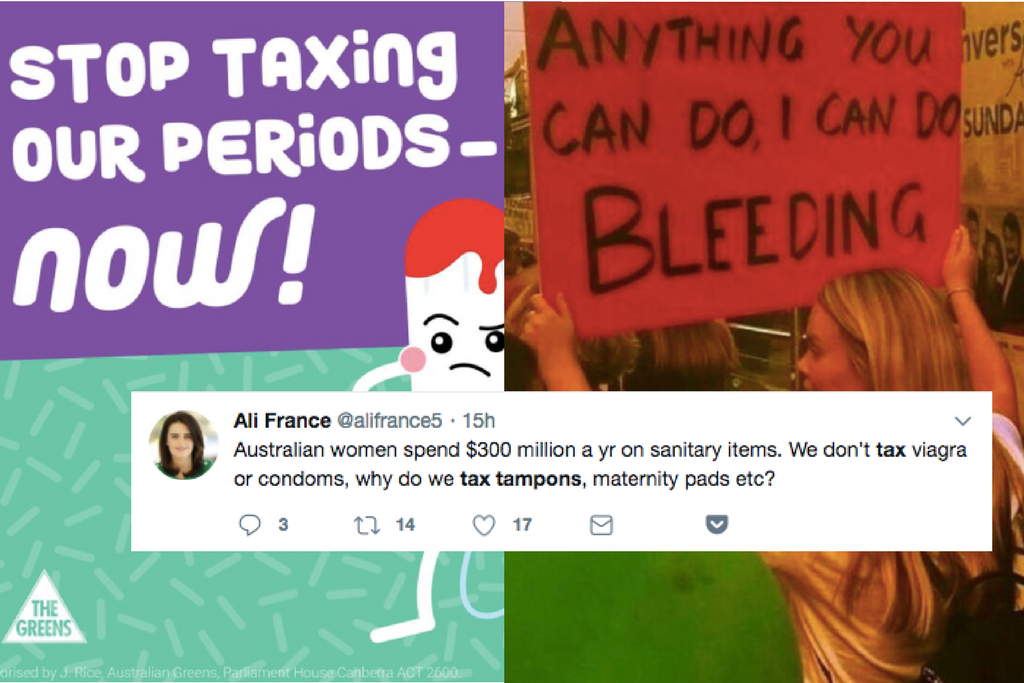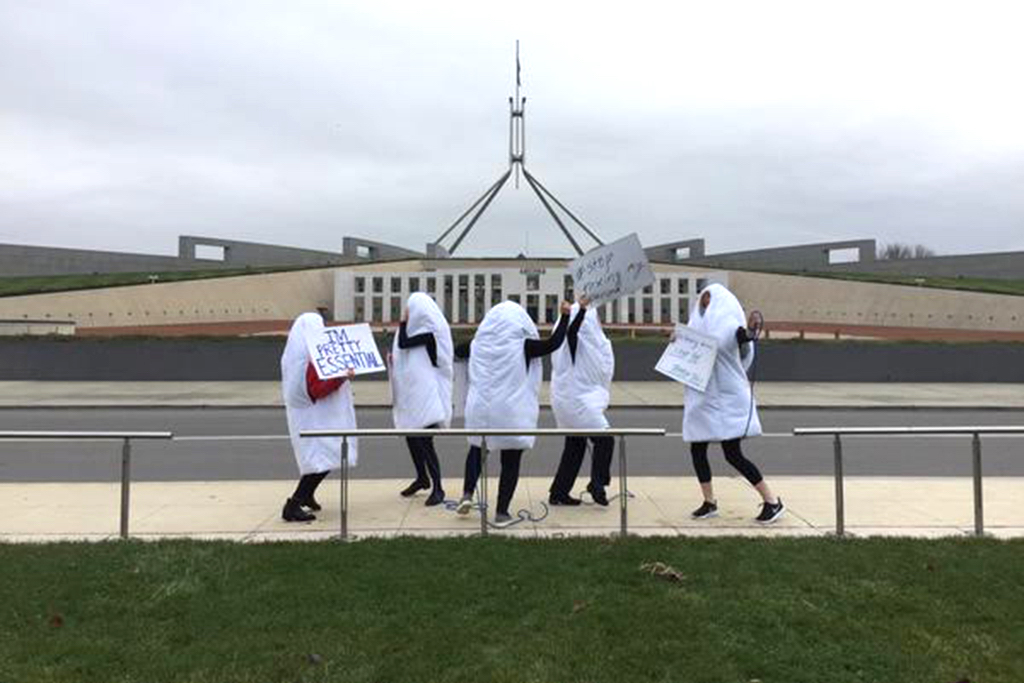So Labor Finally Wants To Axe The Tampon Tax. Will It Actually Happen?
The fight to axe the tax is far from over.

Activists have been campaigning to axe the tampon tax for years. And for years, most politicians have done nothing about it.
But now, with Labor announcing over the weekend that it will scrap the GST for sanitary products if it forms government, supporters of the idea are starting to get excited again.
Will They Actually Be Able To Axe The Tampon Tax?
Getting the GST policy passed is going to be pretty tricky, for a couple of reasons.
First of all, despite the surge in support in recent years, politicians have a history of backflipping on promises to remove the GST on menstrual products.
There’s little public polling data on how many Australians support the tampon tax, but both major parties seem to have cold feet when it comes to implementing the policy.
In 2015, the then Liberal treasurer Joe Hockey even publicly supported the idea. He told Q&A that he backed removing the tax on tampons. Labor even offered support for the move.
But a day later, then-PM Tony Abbott spoke up. He said that the government wouldn’t pursue the policy, and that removing the tax would be a “politically correct” mistake.
Last year, when a Greens amendment to scrap the tax was voted down by Labor and the government in the Senate.
I am so proud to be part of this Labor announcement today.
The ‘tampon tax’ is unfair and discriminatory.
We will get rid of it. pic.twitter.com/91dxroaA5h
— Catherine King MP (@CatherineKingMP) April 28, 2018
A second reason why passing the policy will be a challenge is because in order to change GST laws, the government needs the tick of approval from state and territory governments.
There’s some complex constitutional mumbo jumbo that explains exactly why that’s the case, but the bottom line is that it would be a pretty big deal if a future Labor government went through with the policy change without agreement from the states.
It’s become a convenient card to play in the past couple of years, too: when Scott Morrison has been asked about the tampon tax, his go-to response is to just say that it’s a matter for the states and territories.
With Labor throwing its support behind the change over the weekend, the tax may well be axed: if Labor is elected at the next election, if they don’t change their minds, and if the states and territories agree to it.
Is The Policy Even That Good?
It looks like the policy would save women a few dollars — which might not mean much to every woman, but could mean a lot to women on low incomes.
Modelling shows that Australian women would save around $30 million a year if GST was removed on tampons. Advocates argue that when items like condoms and lubricant are exempt from GST, so too should menstrual products.
They also say that affordability is a huge issue for women who are homeless or fleeing domestic violence.
The GST tampon debate is a great insight into the way that tax is seen by governments. They say they’ll lose about $40m a year if it’s dropped. But that money is still in Australia, it’s just in the pockets of women and their families, not the gov coffers.
— Justin Smith (@JustinSmith3AW) April 29, 2018
Some have argued in return that this is a token change, and that governments should focus on structural inequalities like improving parental leave policy instead. A study on the tax explained some of the theory behind support for scrapping the tampon tax:
“Ending the tampon tax is much easier than eliminating the wage gap, permanently securing women’s access to reproductive rights, or taking on any of the numerous other challenges women face on account of their gender, and the economic results are fairly easy to measure.”
But even if the policy is partly symbolic, it might be an important message to send.
40 years ago Gloria Steinem wrote in her essay If Men Could Menstruate that in a hypothetical world where men had to menstruate every month, “sanitary supplies would be federally funded and free.” For decades, women have argued that the taboo around menstruation disadvantages them. And while abolishing the tampon tax might not solve that problem, its part of a long process of removing stigma.
